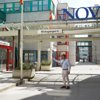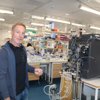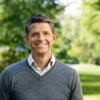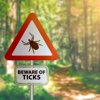Fritextsökning
Artiklar per år
Innehållstyper
-

Ingrid Lönnstedt: What does the p-value mean?
The smaller the better, and preferably smaller than 0.05. A p-value smaller than 5% means that the treatment effect is statistically significant at 5% significance level. But what does that mean? Read Ingrid Lönnstedt´s column to learn more.
-

Avancerade terapier på frammarsch – ”Utmaningarna är stora”
Utvecklingen av läkemedel för avancerad terapi sker snabbt och runt om i landet startas nu flera centrum för att tillgängliggöra den nya läkemedelsgruppen. Möjligheterna är enorma men utmaningarna är också stora.
-

The art of building a biologic drug
The first biosimilar from Xbrane Biopharma was launched earlier this year, and several more are under development at the company’s facility in Solna, Sweden. “We do everything in-house ‒ from DNA fragments to a final process,” says David Vikström, Chief Technology Officer at the company.
-

The Swedish Academy of Sciences: “We have too many researchers”
Sweden does not need more researchers, but it does need better ones. According to the Royal Swedish Academy of Sciences, funding should be distributed to favour excellence.
-

Founder of Bioarctic, Lars Lannfelt, is honoured: “I want to create something for the future”
It´s like a scientist’s dream: to be the world’s first with a drug that genuinely affects one of our major diseases. Lars Lannfelt and his company Bioarctic have achieved just that, and they are thus making a significant contribution to the history of Swedish medicine. He is now being awarded the Research!Sweden Award 2023.
-

Tar in pengar för test som ska upptäcka hjärtinfarkt
Prolight Diagnostics genomför en nyemission på upp till 98,8 miljoner kronor för fortsatt utveckling av ett blodtest som ska upptäcka eller utesluta hjärtinfarkt.
-

High-tech companies are increasingly focusing on health
Tech companies have been taking an interest in healthcare for many years, and this interest seems to be increasing. “It’s not a sudden shift in trend, it’s more about them advancing their positions,” says Anna Lefevre Skjöldebrand, CEO of Swedish Medtech.
-

”Använd modern teknologi för utveckling av vårdens verksamheter”
”Vurmen för IT-system à la 80/90-tal är stor. Misstänksamheten mot moderna lösningar likaså”, skriver Leading Health Cares generalsekreterare Hans Winberg i en debattartikel om vårdens digitalisering.
-

Positiva röster om nya förslagen kring forskningsfinansiering
I onsdags lades en ny utredning fram med förslag om att i grunden förändra dagens struktur för finansiering av forskning. Life Science Sweden har pratat med flera branschföreträdare som ser positivt på förslagen.
-

Rickard Sandberg on this year’s Nobel Prize in Medicine: ”A key discovery”
The discovery that paved the way for the development of todays mRNA vaccines is the basis for this year’s Nobel Prize in Physiology or Medicine.
-

The first drugs to slow down Alzheimer’s – but what does it mean for patients?
New treatments for early Alzheimer’s are bringing hope to thousands of patients and their families. The question is, who will get the treatment, how will the right patients be found in time, and will the healthcare system’s resources be sufficient? Life Science Sweden has spoken to Swedish researchers in Alzheimer’s who voice cautious hope but also see further challenges.
-

Astra Zeneca’s Sweden CEO: “We have great faith in our portfolio”
It all started with a summer job as an operator at Astra’s chemical factory in Snäckviken, just outside Södertälje. More than three decades and countless different assignments later, Per Alfredsson, born and raised in Södertälje, is CEO of Astra Zeneca Sweden, which employs 7800 people in Södertälje, Stockholm and Gothenburg. “It was a very special feeling to be in charge of the entire organisation,” he says in an interview about his career and potential future blockbusters.
-

Optimism på Xspray efter uppgörelse i patenttvist
En uppgörelse uppges ha nåtts i patenttvisten mellan svenska forskningsbolaget Xspray Pharma och läkemedelsjätten Bristol Myers Squibb (BMS) om cancerkandidaten Dasynoc.
-

Dynamic Code köper konkursat bolag
Diagnostikföretaget Dynamic Code förvärvar Findout Diagnostics som i juli försattes i konkurs.
-

Lundabolag tecknar nordiskt avtal och tar in ny finansiering
Lundbaserade Acucort har tecknat ett avtal med Unimedic om försäljning och marknadsföring av munfilmen Zeqmelit i Sverige, Danmark, Norge och Finland. Samtidigt aviserar bolaget en nyemission för att finansiera en kommersialisering av läkemedlet i USA och EU.
-

Bioarctic granted Japanese patent for Parkinson’s disease candidate
Bioarctic has been granted a Japanese patent for its antibodies targeting Parkinson’s disease.
-

Small robots to deliver pharmaceuticals to the body
Robots that can operate inside the body and a platform that combines ultrasound with AI. These are a couple of the technologies that have qualified for a list that aims to promote sustainable entrepreneurship.
-

CROs in drug development: "We use our expertise to speed up the process
Consultancy firms have become an increasingly important part of drug development. “It’s a trend and a business model that works, and we see no indication that it will change,” says Helena Lüning of the industry organisation ASCRO.
-

Branschens doldisar – kontraktsforskarna
Konsultbolagen har blivit en allt viktigare del av läkemedelsutvecklingen. ”Det är en trend och affärsmodell som fungerar, och vi ser inga tecken på att den kommer att vika“, säger Helena Lüning, branschorganisationen ASCRO.
-

Why the world renown researcher Marc Tessier-Lavigne resigns as Stanford´s president
In mid-summer, neuroscientist Marc Tessier-Lavigne announced his resignation as President of Stanford following allegations of manipulated study data. According to the reporter Theo Baker, who first reported the story, Tessier-Lavigne “rewarded the winners and punished the losers”. Here is the background of the story which has shaken the American scientific community over the summer.
-

Stanfords rektor avgår efter anklagelser om forskningsfusk
Mitt i sommaren meddelade neuroforskaren Marc Tessier-Lavigne att han skulle lämna sin post som rektor för Stanford efter anklagelser om manipulerade studiedata. ”Han belönade vinnarna och straffade förlorarna”, säger reportern som avslöjade honom. Här är bakgrunden till vad som fick den uppburne forskaren på fall.
-

Rapid developments in AI – “All stakeholders are struggling to understand it”
Artificial intelligence is being discussed more and more, and developments in the field are moving rapidly. As the Swedish Medical Products Agency testifies, keeping up with developments is not easy.
-

Olika resultat för Sedanas inhalerade sedering av barn i studie: "Föranleder försiktighet i tolkningen"
En första analys av en fas III-studie med Sedana Medicals inhalationssedering påvisar "non-inferiority" – eller klinisk likvärdighet – för hela analyspopulationen, men inte i per protocol-analysen.
-

The first Lyme disease vaccine faces a delay
Pfizer and Valneva’s Lyme disease vaccine, which could be the first of its kind, is facing delays of about a year. The reason is problems at trial sites in the United States, which have forced the companies to drop half of the participants in an ongoing Phase III study.